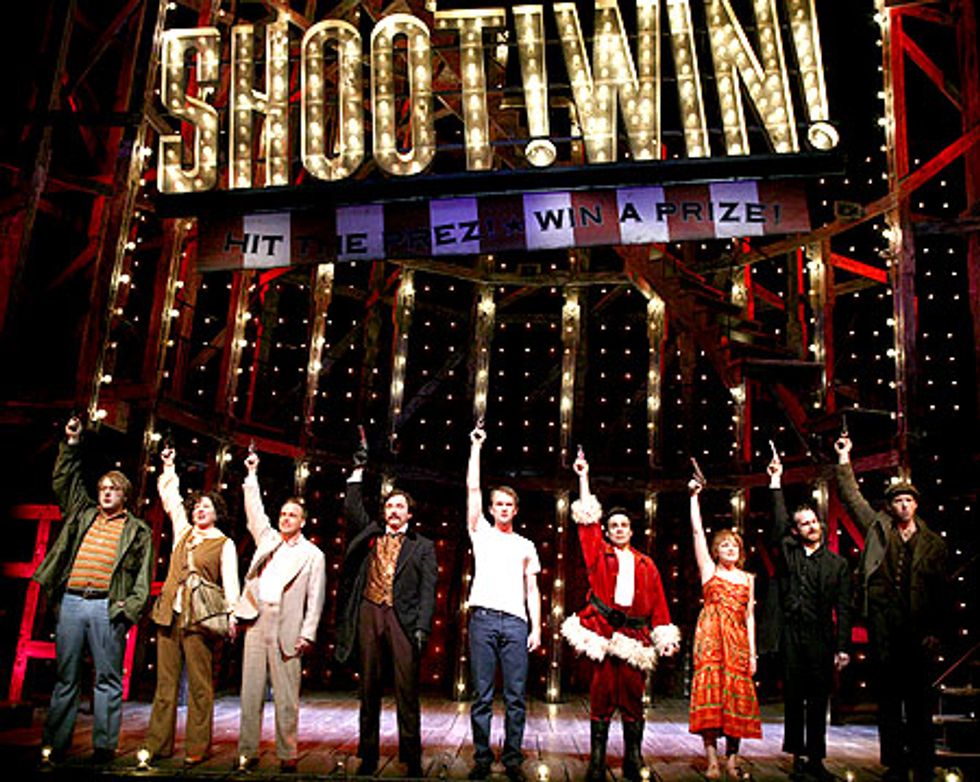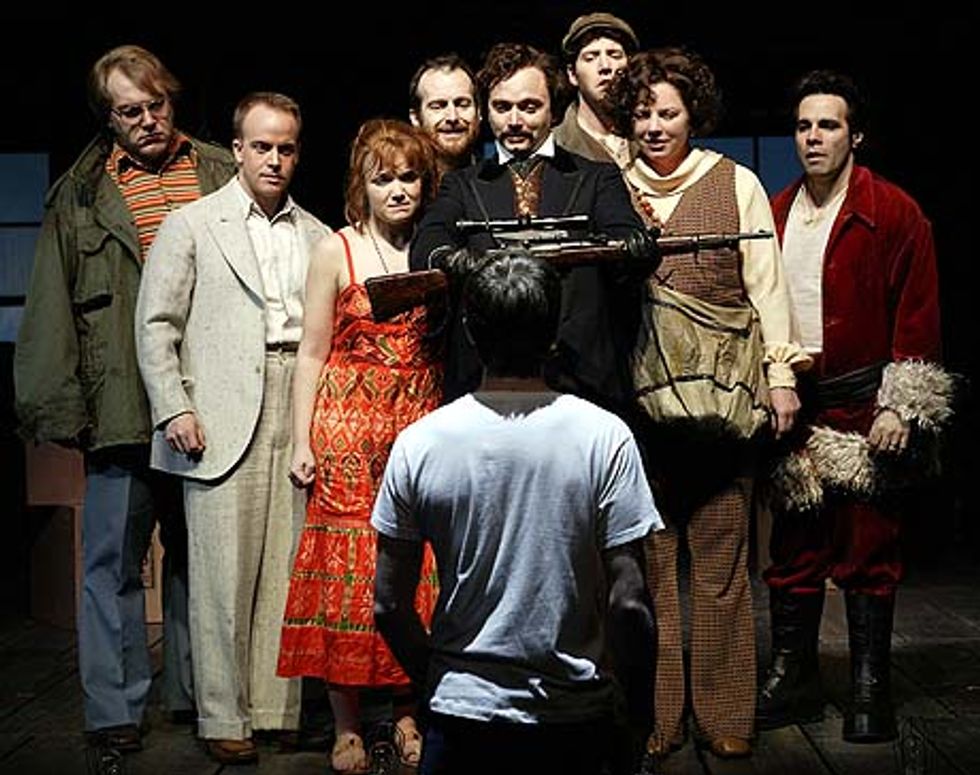Calliope music fades in as a carnival proprietor entices people to play a shoot-to-win game. This scene grows tense as the Proprietor shows the shooters their targets. As he welcomes the people in, he tells them to "C'mere and kill a president." His gleeful facade does not change as he welcomes assassins in one by one and gives them each a weapon.
Stephen Sondheim and John Weidman's "Assassins" is a political thriller that was not initially well-received because of its subject matter. The show tells the stories behind America's most infamous men and women: nine individuals who have assassinated or attempted to assassinate American presidents. The show opens with the Proprietor telling the assassins that "Everybody's got the right to be happy." That's the American Dream. If people want to be happy then they should be able to fight for it. The Declaration of Independence tells its citizens that they have the right to pursue happiness; the Proprietor extends that right to the assassins.
The lives of three successful assassins-John Wilkes Booth (Lincoln), Leon Czolgosz (McKinley), and Charles Guiteau (Garfield)-are told and sung by a Balladeer. The Balladeer is an important contrast to the assassins. He is representative of "normal" American society. He is filled with optimism and convinced that the assassins are outliers of society, that they are abnormal and different. He is the personification of the American Dream. He promotes hope for America and gives the impression that it was solely built on that hope, instead of the countless incidents of bloodshed. While the assassins are trying to justify their killings, the Balladeer discredits everything they say. John Wilkes Booth pleaded with the Balladeer to take his written justification for Lincoln's assassination, but the Balladeer took the letter and burned it, then proceeded to tell the audience that Booth was "off his head."
Each assassin follows the American Dream. They all want to be happy and the only way to do that was to assassinate the president. The song "Another National Anthem" shows each assassins' reasoning. Leon Czolgosz said that he killed President McKinley because "it was wrong for one man to have so much service when other men have none." Charles Guiteau killed President Garfield to "preserve the Union and promote the sale of my book." Each assassin has their reason and now they want their prize. The American Dream promises a prize if you work hard enough to achieve what you want. The assassins may have killed presidents, but they didn't get what they wanted. They make the promise to keep trying in the last verse of the song: "You've got to keep on trying every day until you get a prize..." The Balladeer fights to be heard during this song, but he is consumed the rising aggression of the assassins' voices. They have realized through their own failures that the American Dream is an illusion.
In the 2004 Broadway revival, the Balladeer transformed into Lee Harvey Oswald. This transformation is particularly disturbing because of what the Balladeer represents. Throughout the musical the other assassins were encouraging each other to kill presidents and the Balladeer was the dissenting voice. Instead of resisting, he was turned into the final member of the assassin's family. This scene shows us that the most common and normal among us can be corrupted into the malevolent, entitled pushers of chaos. "Assassins" ends as the assassins convince Oswald that he can achieve all he wants if he kills President Kennedy. After Oswald fires his shot, a booming verse of "Hail to the Chief" fades into a haunting reprise of the Proprietor's song "Everybody's Got the Right."
"Assassins" shows a disturbing perversion of the American Dream. Most people want to push these outcasts as far away from normality as possible, but the assassins were linked to them through the illusion of the American Dream. For them, failure was not an option; they had to assassinate presidents to achieve the happiness they as Americans were promised.


















